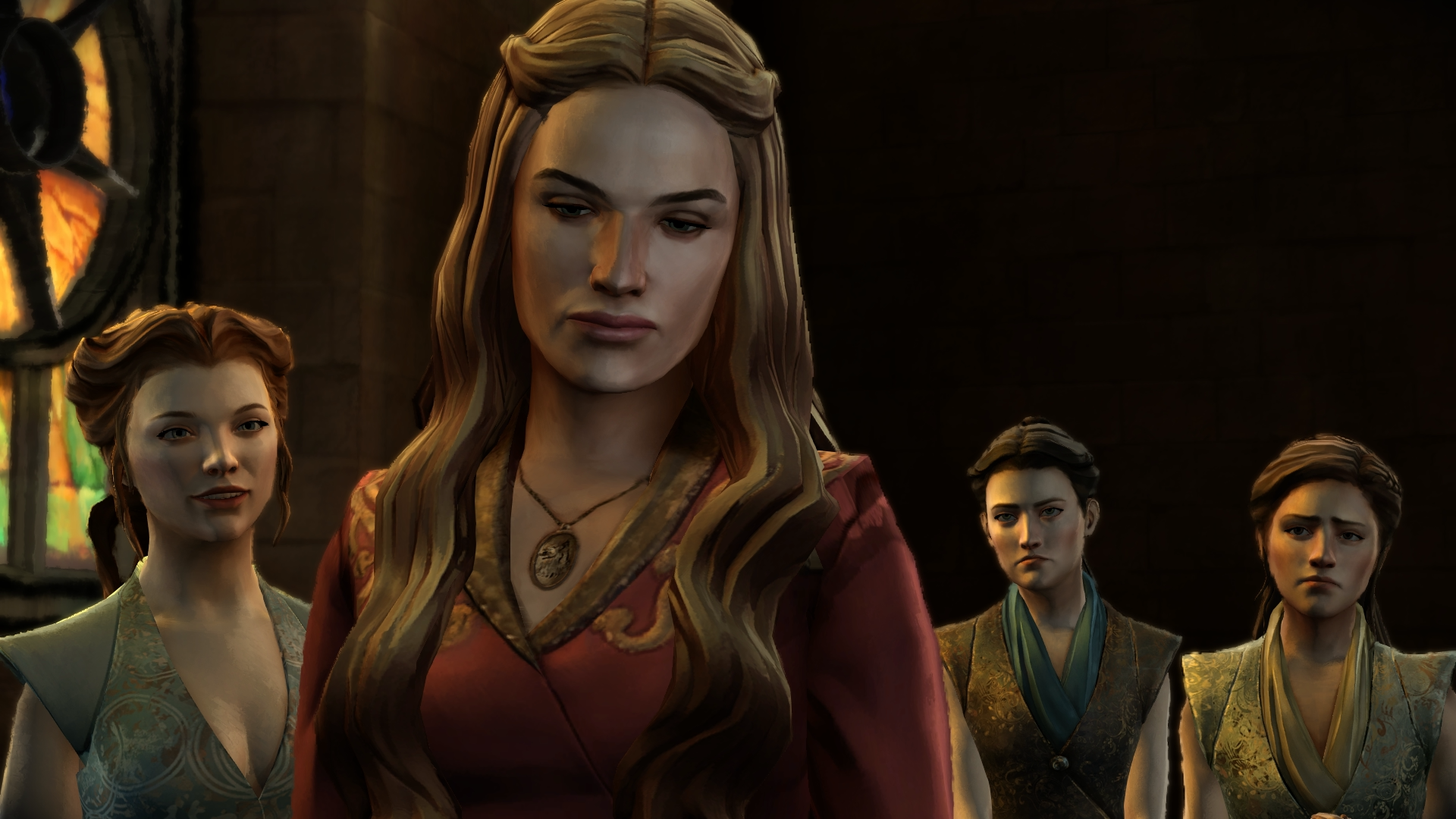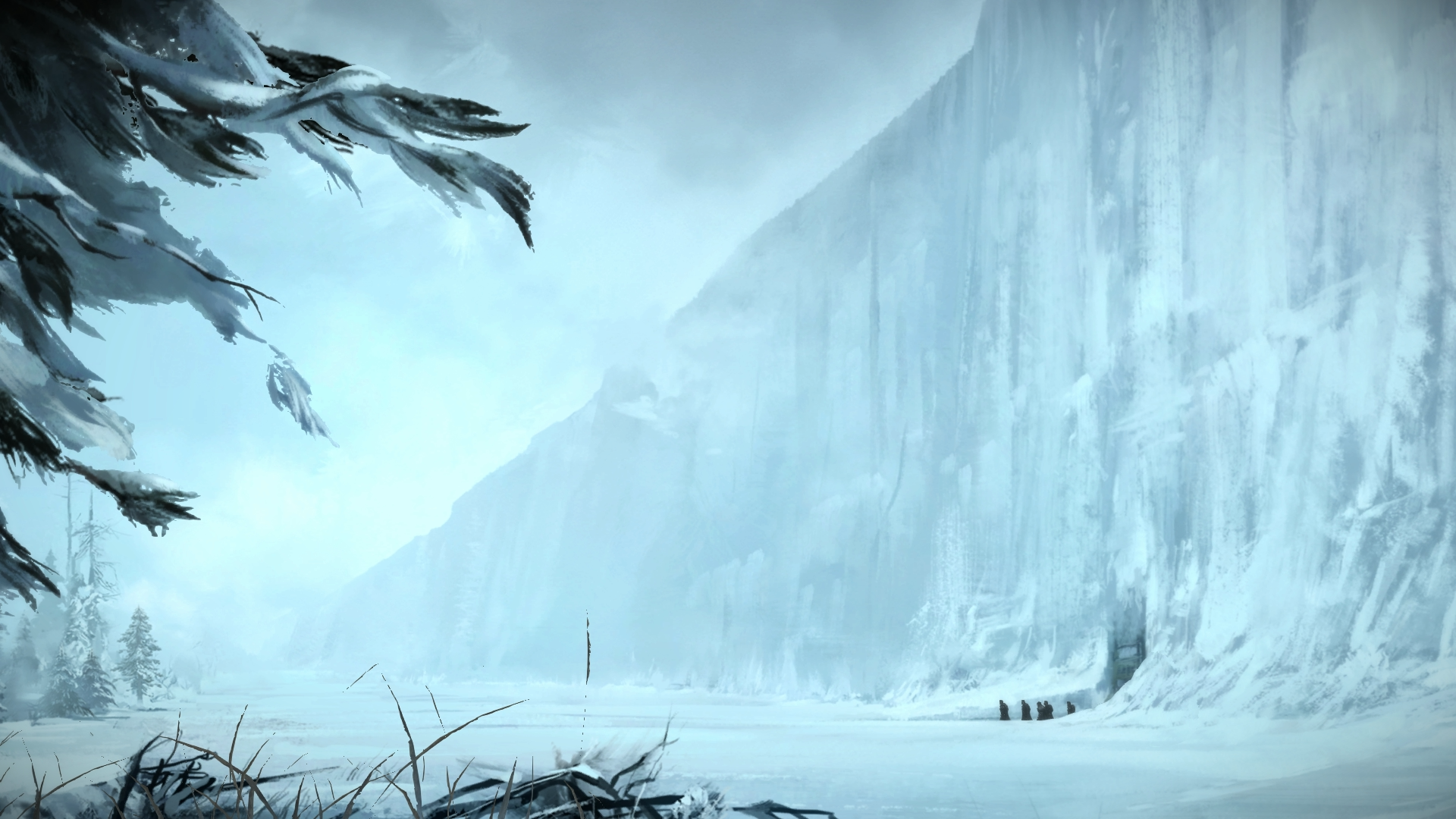Game of Thrones: Episode Three — The Sword in the Darkness review

You can’t buy Telltale’s adventures one episode at a time on PC; you’re buying all six in the season for $30/£23—so it doesn’t make much sense for us to score each one individually. We’ll review and score the whole package when all the episodes have been released, while individual episode reviews like this one will be recaps and unscored critique.
"Words are wind, Asher," says Malcolm Branfield to his nephew as he swelters in the Meereenese heat. "It's choices that define who you are."
And at last, three episodes in, that seems like it's finally the case with Telltale's Game of Thrones. In The Sword in the Darkness, there's no more need for hours of exposition and heavy-handed verbal nods to the fandom; here, the pieces are all on the table and put into motion. Telltale's Game of Thrones was a wonder before, but it relied too heavily on the characterizations and visual trappings of the HBO series, thus leaving the narrative to hobble along like Rodrik Forrester. Here, it finds its feet. Significant debts to the HBO show remain, but The Sword in the Darkness is the series' first real proof that it has the courage to strike out on its own.
Purists, indeed, may argue that it ventures too far from Martin's original, but it works as a game. Case in point: there's barely enough time to praise the Seven before three of the series' most original characters start swiping their swords at a dragon and dodging fireballs in close quarters. Most of the dragon action in the HBO series and the books takes place offscreen—tales of sheep getting chomped on there, burned farmchildren in bundles there—and the focus seems more on the logistics of containing such beasts rather than dodging flames and Anne McCaffrey-style dragonriding. Here, however, we get what could be a cutscene from Dragon Age: Inquisition.
That's only the beginning. Hints abound in The Sword in the Darkness that Telltale's about to garnish Game of Thrones' gritty base with a more deliciously generous helping of fantasy seasoning than we've seen in the series so far, such as when another key character gets told that he has to hunt down a mystical MacGuffin hidden somewhere among the grumpkins and snarks north of the Wall. Parallels could be drawn between Bran and company's snoozy quest for the three-eyed crow, but there's a treasure hunting aspect about the whole affair coupled with the pangs of divided loyalty that gives this new quest a flavor of its own. If handled correctly (the journey doesn't start until the next episode), it should be enough to boost one of the game's most humdrum storylines into its finest.

But the episode's focus on loyalty manages to overshadow all this hubbub about dragons and things that go bump in the snow. Way up in the north, poor Gared Tuttle finds reason to question his Night's Watch vows mere moments after he speaks them (through a nifty button prompt sequence that could almost pass for a sing-along in happier animated settings). Way down in King's Landing, Mira finds herself torn among multiple loyalties—those of her friends and two of the bigger names in Martin's canon. Even Lord Rodrik Forrester must choose his loyalties, particularly after the arrival of fourthborn occupier Gryff, whose behavioral similarities to Back to the Future's Biff are as annoying as the the wart on his lower eyelid is distracting.
All this creates necessary tension, but the relevant choices come a little too quickly after we're introduced to the circumstances. By the end it's easy to predict when a Big Decision is coming up, to the point where it ventures dangerously close to humor. It's sort of like, to take a hypothetical example, seeing Sansa Stark swearing a vow to Tyrion that she'll never eat lemon cakes again, and then watching as—not two minutes later—Cersei offers her a greater degree of freedom as long as she chats over a plate of nice, fresh platter of lemon cakes. Such scenarios come with the one-two force of a Jack Dempsey beatdown. When the episode's end comes without one of the Big Important Choices we've come to expect from the series, it's hard not to think it's because the writers already outdid themselves over the previous two hours of gameplay.
The good news is that all this rarely gets in the way of enjoying The Sword in the Darkness. It's easily the series' most balanced episode to date, with action sequences requiring carefully timed swipes of keyboard keys or gamepad buttons coming almost as soon as I grew weary of chitchat from the dour-faced cast. People die and friendships arise from seeming enemies, but through it all there's a glimmer of hope amid the chaos. This being George R.R. Martin's world, there's always a chance that some rough-booted brigand will stomp on that hope and force it to suck mud between its teeth. Martin may not have written The Sword in the Darkness, but it's the first episode that's felt like a new creation of his. I like it, and I don't think it's a stretch to say that I'm now looking forward to the next installment of Telltale's series than I am to the HBO show. As a book reader, I have a pretty good idea of where HBO's latest season is headed, but this, at last, feels like something entirely new.
Keep up to date with the most important stories and the best deals, as picked by the PC Gamer team.

